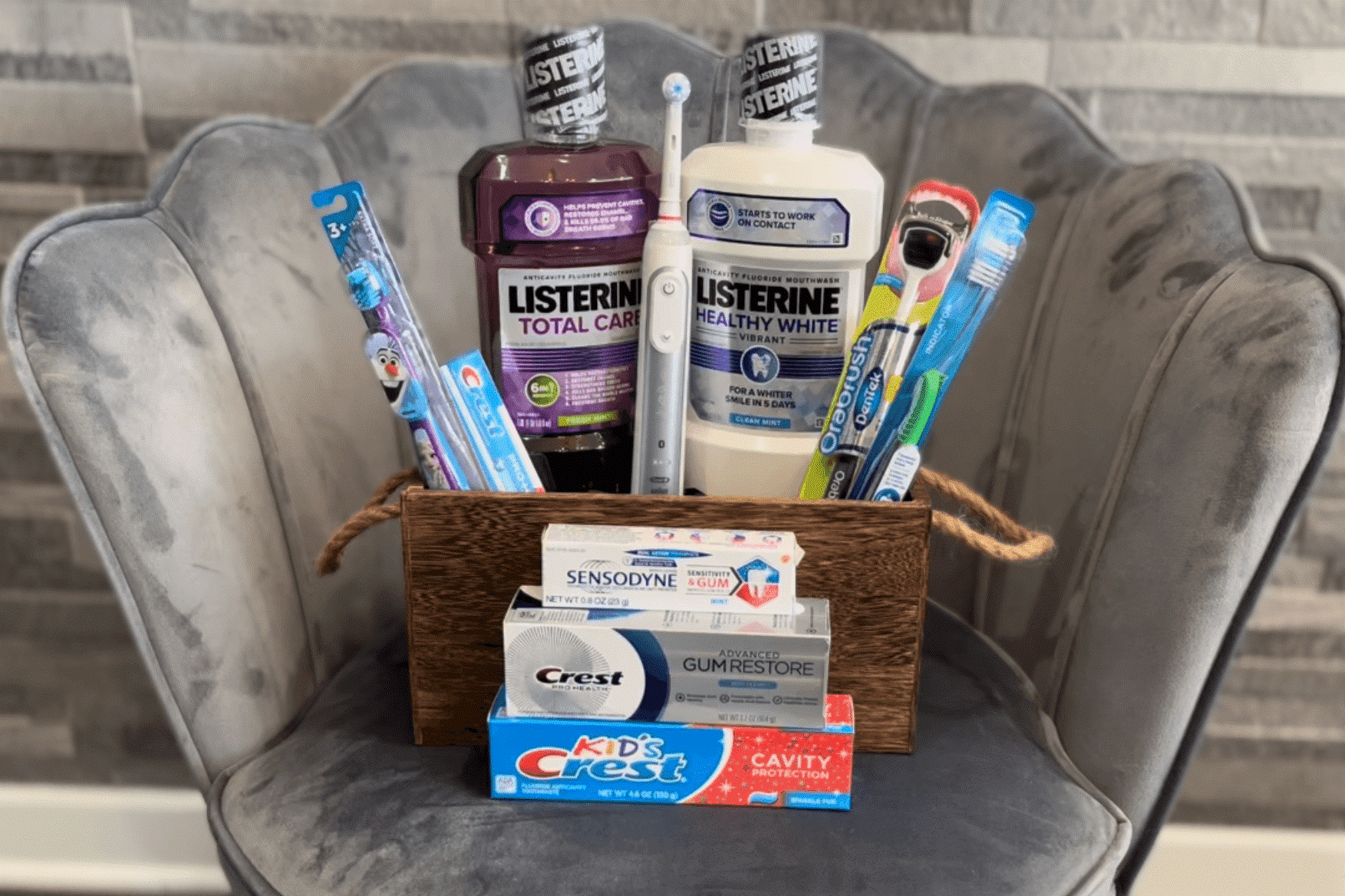
October is National Dental Hygiene Month. All of this month, we will be discussing oral healthcare products based on frequently asked questions from our patients. Different products will be highlighted weekly in videos on our social media pages. You can follow us @leesburgdentistry on Instagram or www.facebook.com/leesburgdentistry on Facebook. In general, if there is an ADA (American Dental Association) seal of approval on the product then it is safe to use.
Mouthwash
How often should I be using mouthwash?
Mouthwash is as important as brushing and flossing. In general, we recommend daily use with an antiseptic fluoride rinse to prevent gingivitis and tooth decay. When using a fluoride rinse, it is important to not eat or drink for 30 minutes after rinsing in order for teeth to absorb the fluoride. If there are specific conditions that need to be addressed, one mouthwash can be better than another. For example, some are targeted more for patients with tooth decay, bad breath, dry mouth, or whitening. Ask us when you come in for your next visit which product is best suited for your oral health needs.
What is the best whitening mouthwash?
We really like the Listerine Healthy White Vibrant. It whitens and has antiseptic properties in it to fight bad breath and gingivitis. It also contains fluoride to help combat cavities and is safe to use 2x a day.
Flossing
Are the floss picks as good as manual flossing?
Unfortunately, they are not. The floss picks can actually push plaque and food remnants further down between the gums and teeth. They are made for a quick fix like if you are out and have something stuck between your teeth. They are great for children to get them in the habit of daily flossing. They are also great for patients with manual dexterity issues, such as Parkinson’s Disease.
If I use an oral irrigator, do I still need to floss?
Yes. Oral irrigators or water flossers are made to supplement flossing, especially around crowns, bridges, and implants. They are not meant to replace manual flossing. Though more tedious, manual flossing is the best and proper way to thoroughly remove plaque from between the teeth and gum line.
Brushing
Do electric toothbrushes work better than manual flossing?
If you have not made the switch to an electric toothbrush, now is definitely the time. Electric toothbrushes are designed to remove more plaque than a manual brush. Studies have shown that an electric toothbrush has over 100x more movements per minute than using a manual brush, thereby allowing them to effectively remove more plaque. The toothbrush heads are soft or extra soft and do not damage the enamel or gums.
What is the best electric toothbrush?
We recommend any brush from Philips Sonicare or Oral-B. Although there are many great brushes out there, the volume of scientific studies on electric toothbrushes have been carried out with these leading brands.
What order should I be using my toothbrush, floss, and mouthwash?
There is a lot of debate on this. In general, we recommend rinsing first, flossing, and brushing. Your toothpaste has the most ppm (parts per million) of fluoride, which we want to be absorbed in the oral cavity. The order of this can change depending on which products you use and the concentration of fluoride, especially when it comes to prescription mouthwash or toothpaste. It can also change depending on what your daily habits are in terms of eating, drinking, working, and sleeping. Ask us when you come in for your next visit.
